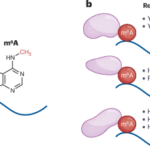Navigating the Ethical Quagmire
Physician Rupak Desai, operating a business in Atlanta, offers international medical graduates (IMGs) opportunities to bolster their CVs through co-authoring conference abstracts and papers. For a fee of approximately $1000, participants can secure authorship on abstracts submitted to prestigious medical conferences like the American Heart Association’s Scientific Sessions meeting. Desai’s program is emblematic of a burgeoning industry catering to IMGs seeking research experience for U.S. residency applications.
Offers international medical graduates (IMGs) opportunities to bolster their CVs through co-authoring conference abstracts and papers for a fee of approximately $1000
Critics argue that many of these programs resemble paper mills, churning out low-quality studies that undermine the integrity of scholarly publishing. Dissatisfied participants report feeling misled by promises of mentorship and genuine research experience. Despite Desai’s insistence that authorship requires substantive contributions, ethical concerns persist about the commodification of academic authorship.
Several organizations in this industry, such as the Research Update Organization and the Global Remote Research Scholars Program, have come under scrutiny for publishing dubious studies, including one suggesting a link between vaping and stroke risk. These studies often lack robust methodology and undergo inadequate peer review, underscoring broader issues within the academic publishing ecosystem.
While these programs address a genuine need for research experience among IMGs, the proliferation of low-quality publications raises significant concerns about the integrity of medical research. Moreover, the pressure on IMGs to accumulate publications for competitive residency applications exacerbates the problem, incentivizing participation in programs that prioritize quantity over quality.
The ethical implications of these practices extend beyond individual participants to the credibility of medical research as a whole. Misleading or flawed studies can have far-reaching consequences, influencing clinical practice and public health policies. This highlights the importance of rigorous peer review and ethical oversight in scholarly publishing.
In response to these challenges, stakeholders in medical education and research should consider implementing measures to safeguard the integrity of the publication process. This could include strengthening peer review standards, enhancing transparency in authorship contributions, and providing alternative pathways for IMGs to gain meaningful research experience.
Additionally, addressing the underlying factors driving IMGs to seek out these programs is crucial. Many medical schools around the world offer limited research opportunities, leaving graduates ill-equipped to compete in the highly competitive U.S. residency application process. Investing in research training programs and mentorship opportunities for IMGs could help address this gap and promote ethical research practices.
Ultimately, ensuring the quality and integrity of medical research requires collective action from academic institutions, professional organizations, and journal publishers. By fostering a culture of ethical research and providing robust support for aspiring researchers, we can uphold the standards of academic excellence and promote evidence-based medical practice.












